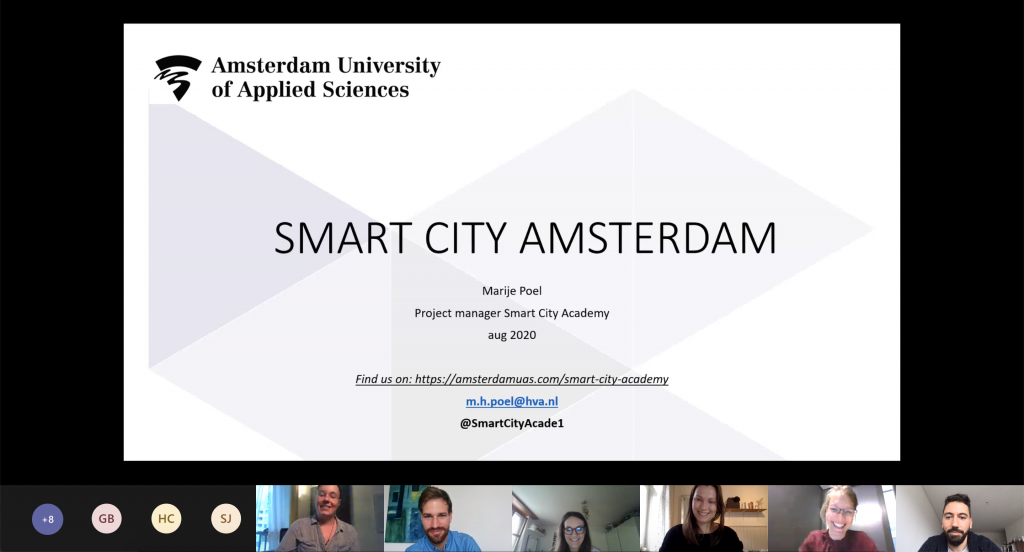The new reality
by Qendrim Dauti and Jonas Ayoub
Contrary to the first day of our study week, today’s sessions were held in an online setting through Microsoft Teams starting at 08.30 a.m. Seeing all these little screens one still needs to get used to it. However, this shows the degree of flexibility that our society has achieved compared to only one decade ago. Due to the imminent danger of infection this is a part of our new reality.
The center stage of today’s first session was again taken by the topic of projects related to smart city, more particularly to the ones in Amsterdam. After a short introduction round, Marije Poel (Project Manager Smart City Amsterdam) presented the concept of Amsterdam Smart City, which includes over 297 projects. Over the years, Amsterdam Smart City developed into a bigger and bigger network with different partnerships. They own a wide range of expertise in innovation, ecosystems, entrepreneurship, user involvement and data analysis. The students showed again a great commitment in the topic and started an interesting discussion about Smart Cities by asking questions which could be communicated via the chat box in MS Teams.

The rest of the day was more focused on NGO’s and possible approaches to evaluate the impact of their projects. We continued with Session 4 of the study week where we got to know Aflatoun International. Wendy and Tetiana, two representatives of the organization, introduced us to the mission and programs of the NGO. Aflatoun is based in the Netherlands offering social and financial education to children and young people worldwide. They also mentioned that the impact evaluation is done together with the project partners in the field.
After the lunch break it was already time for a short wrap up of the different topics we focused on in the first couple of sessions. It was underlined that we only had a descriptive approach yet related to the smart city concepts and that scientific research is needed in order to establish a further understanding on the various approaches and differences of the degree of implementation between countries or even cities within the same nation. In the discussion it could already be identified that critical junctures are a leading factor for a starting signal for such projects.
Oriana Ponte held the last session of the day where she shared revealing insights into the evaluation, monitoring and learning of development aid projects. After an overview of the basic concepts and methods behind the impact evaluation of aid projects such as randomized control trials and the theory of change the presentation mainly focused on the education in the humanitarian context. The session was complemented by a very interesting Q&A with a dedicated involvement by the students.
After the first session in the morning the focus today shifted onwards NGO’s and their impact evaluation. This was a great opportunity to gain some further understanding on the topic and to connect knowledge of previously attended modules in our master studies with deeper insights directly from the field.